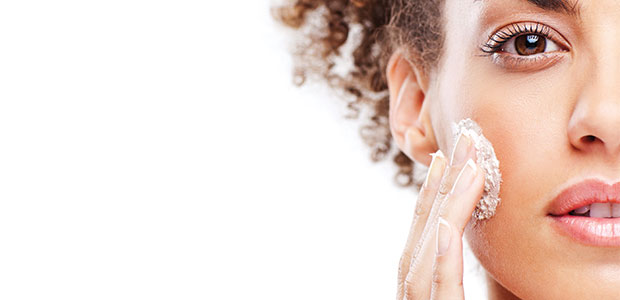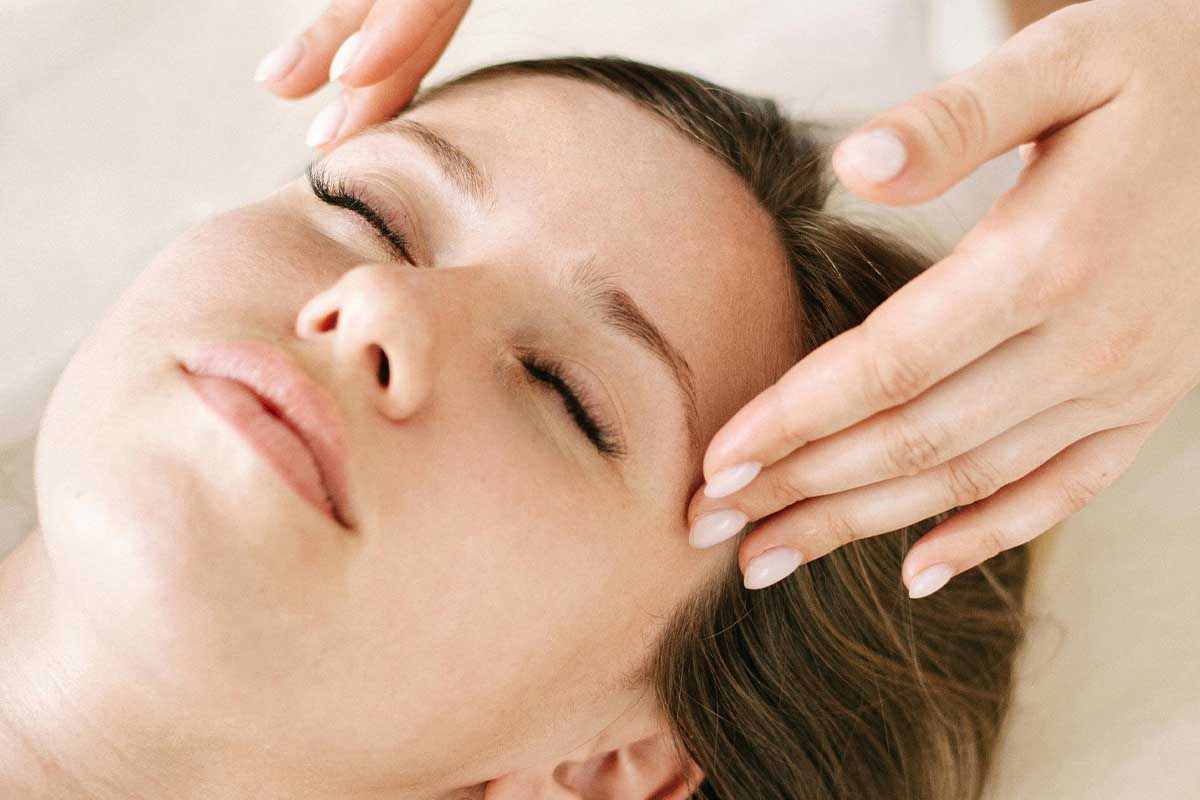Advertisement
Spring Skincare
Get glowing for warmer weather

Transitional skin care can be tricky. We’re out of the worst ravages of winter, but we haven’t yet graduated to the sunny days of summer, and despite our best efforts, our skin may be looking a little worse for the wear. But just like the weather, our complexions can go from gloomy to glowing—with a little TLC and some natural skin care products, of course.
Exfoliate—from head to toes
Slough off dry, flaky dead skin cells by exfoliating all over. But go easy: exfoliate only a couple of times a week, and keep in mind that those who have sensitive skin or are prone to allergic reactions should proceed with caution.
Face
There are two types of exfoliants that can be used on facial skin. Neither one is necessarily better than the other—it’s best to choose the one that works for you and your unique skin concerns.
- Physical exfoliants contain small beads that use friction to remove dead skin cells. Steer clear of beads made from synthetic plastics, which can make their way into the waterways, where they can contaminate the environment and be eaten by sea creatures. Instead, look for a gentle sugar- or oatmeal-based scrub or one made with nourishing jojoba beads.
- Chemical exfoliants are naturally derived acids applied topically to remove dry, scaly skin. One popular option is alpha-hydroxy acid (AHA), which is often derived from fruit acids. To avoid sensitivity, start with a low concentration and be sun smart, as it may increase sensitivity to the sun.
Lips
Flaky, chapped lips can also be gently exfoliated. Look for a natural lip scrub at your local health food store, or massage some natural cane sugar, honey, and vegetable oil (such as coconut oil or olive oil) into your lips with a facecloth or your finger. Follow up with a natural lip balm.
Body and feet
There are plenty of sugar- or salt-based body scrubs at natural health retailers. Gently massage them all over your skin in the shower, playing special attention to often-neglected knees, toes, and elbows. Depending how much abrasion you want, apply with a bath mitt, loofah, or facecloth.
Dry brushing is another great way to exfoliate. Make long, sweeping strokes toward the heart with a natural bristle body brush to slough away dry skin and promote healthy circulation before showering.
Of course, moisturizing should always come after exfoliation. This helps protect the skin’s barrier, locks in moisture, and keeps skin from drying out and reversing all the hard work you just did to exfoliate.
Lighten up, already
The dry, cold air really saps the moisture from our skin, so choosing heavier products makes sense in the winter. But now that the sun is out and the temperature is a little friendlier, we can switch back to some lighter fare.
Keep in mind that specialized products such as eye cremes don’t typically need to be switched with the seasons.
Moisturizer
If you used a heavier creme in the winter, you might want to switch to a lighter lotion in the spring. Similarly, if you have oilier or acne-prone skin and used a light lotion during the winter, you may want to consider looking for a moisturizer for spring and summer with an even lighter, gel-like feel. Many skin care companies have multiple moisturizers for all different skin tones and types, so it’s easy to make the switch.
Makeup
Warmer weather also means saying goodbye to heavy foundations. Opt for a classic tinted moisturizer, or choose a natural BB (beauty balm) creme or CC (colour correct) creme. These trendy multitaskers are similar in texture and appearance to a tinted moisturizer, but they have priming, smoothing, and antiaging benefits.
Rapunzel, Rapunzel, put some life back in that hair!
Just as the winter weather leaves our skin parched, it can do serious damage to our luxurious locks.
When choosing shampoo, steer clear of the popular foaming agent sodium lauryl sulphate, as it is known to be irritating on skin. Instead, nourish your mane and scalp with gentle, natural shampoos and follow up with a nourishing conditioner.
For an added boost, use a leave-in conditioner a few times a week, and apply a hair oil before styling—but be kind when using a dryer, straightener, or curling iron, as the heat can be harsh on hair. A
Spring clean your cosmetics
When was the last time you gave your cosmetics kit a good overhaul? Be honest. It’s okay—now’s your chance!
- Check it: Cosmetics often have an expiry date stamped on the package. If you can’t find one, think back to how long you’ve had it. In general, products should be used within a year, but toss them sooner if you notice any changes in appearance, smell, or texture.
- Clean it: If not cleaned regularly, makeup brushes can quickly become contaminated with bacteria. Look for a natural makeup brush cleaner at your local natural health retailer, or use a gentle castile soap and water.
- Choose it: Do a quick inventory and see what you’re missing. Then, before making a shopping list and replacing absolutely everything, ask yourself a few key questions to see what you really need—including why the tossed products didn’t get used in the first place. Were they too time consuming? Not your colour? Didn’t work for your skin? When you’ve determined what you need, drop by your natural health retailer—list in hand.
Warm weather and allergies
For those who suffer from skin allergies, the warmer weather can cause trouble. Sweat and heat can cause hives, sweat can exacerbate eczema, and sometimes nasal allergies or asthma can lead to skin irritation.
If you suffer from seasonal allergies or skin conditions such as eczema, make sure you’re prepared: discuss your symptoms with a health care practitioner, and be sure to keep your natural remedies on hand, just in case.





